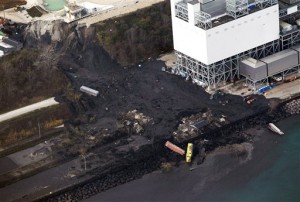Congressman David McKinley (R-WV) is at it again. Late Tuesday night, he introduced a slightly revised version of the “Coal Residuals Reuse and Management Act” (H.R. 2218). This bill is very similar to Representative McKinley’s terrible coal ash that passed the House of Representatives last Congress.
Coal ash, the toxic byproduct of burning coal, contains heavy metals and other chemicals known to be harmful to people and wildlife. People can be exposed to dangerous metals like arsenic and mercury when they drink water contaminated with coal ash. There are
no federal regulations to protect communities from this waste and since most states also have no safeguards, coal ash has contaminated land, air or water more than 200 times in at least 37 states. In 2010, the Environmental Protection Agency (EPA) proposed the first-ever federal safeguards for the management and disposal of coal ash, but three years later the Agency has failed to issue a final rule.
McKinley claims his bill will protect public health and the environment, but it won’t. His bill ignores science and will essentially codify the status quo of coal ash disposal. Power companies will be able to continue to dump their waste in unlined and unmonitored ponds and landfills. This bill does nothing to address the legacy of abandoned coal ash dumps that have been contaminating water and land with toxic metals for decades. Worse, this bill would prevent EPA from establishing or enforcing minimum safeguards to protect communities, even when states fail to do so.
The House Energy and Commerce Subcommittee on the Environment and Economy will begin debating this bill later today followed by a panel vote later in the evening or on Thursday morning. The “Coal Residuals Reuse and Management Act” is a bad bill - it will continue to allow communities to be needlessly exposed to toxic metals that can harm us and cause cancer. Congress should reject this bill and allow EPA to finalize minimum standards that will actually protect our communities from this dangerous waste.



